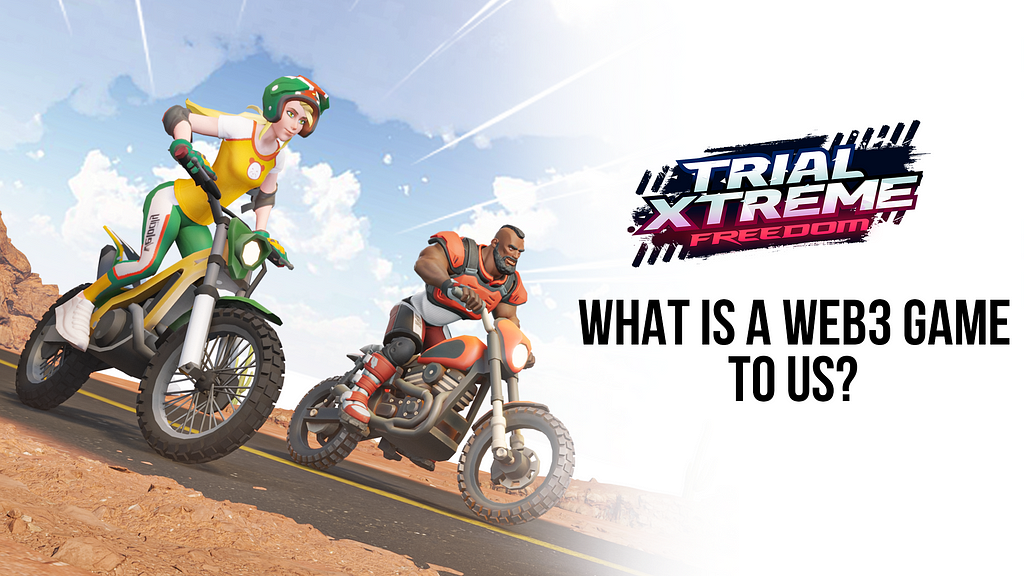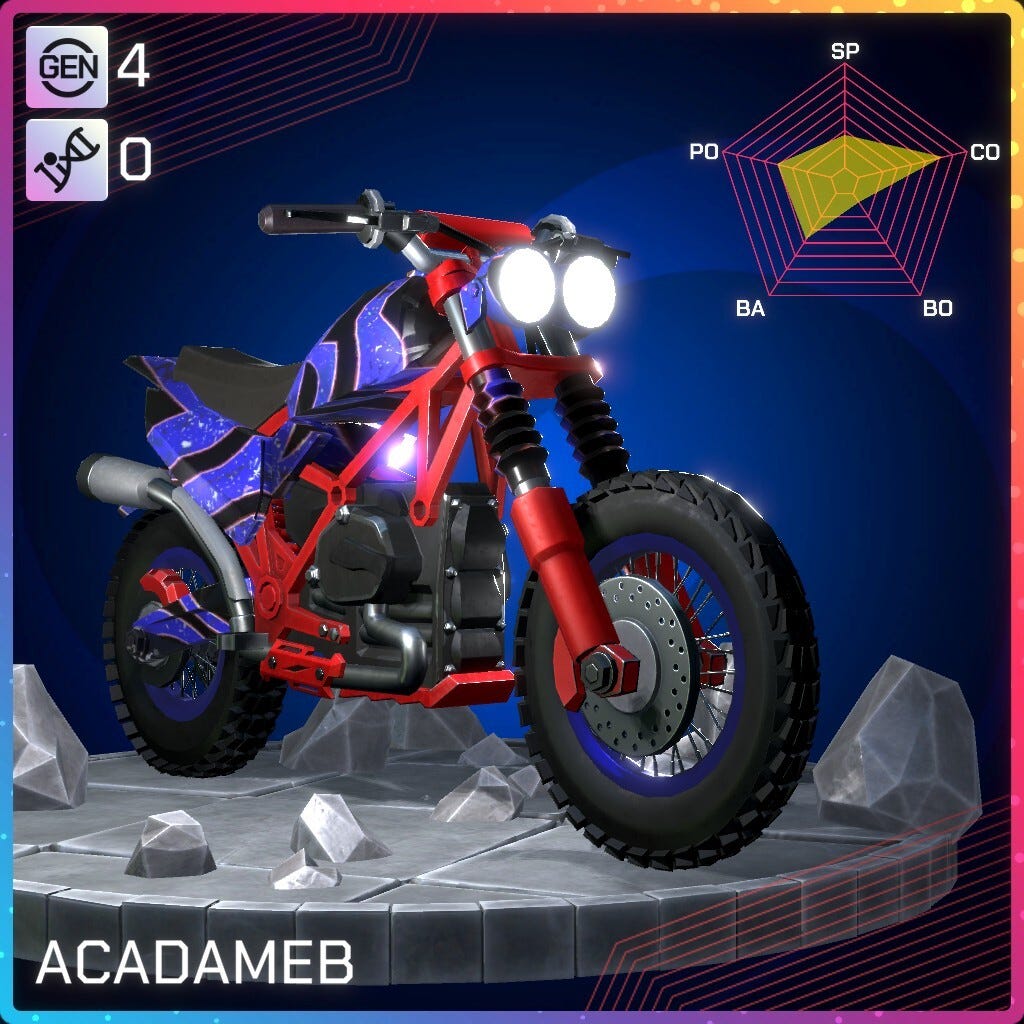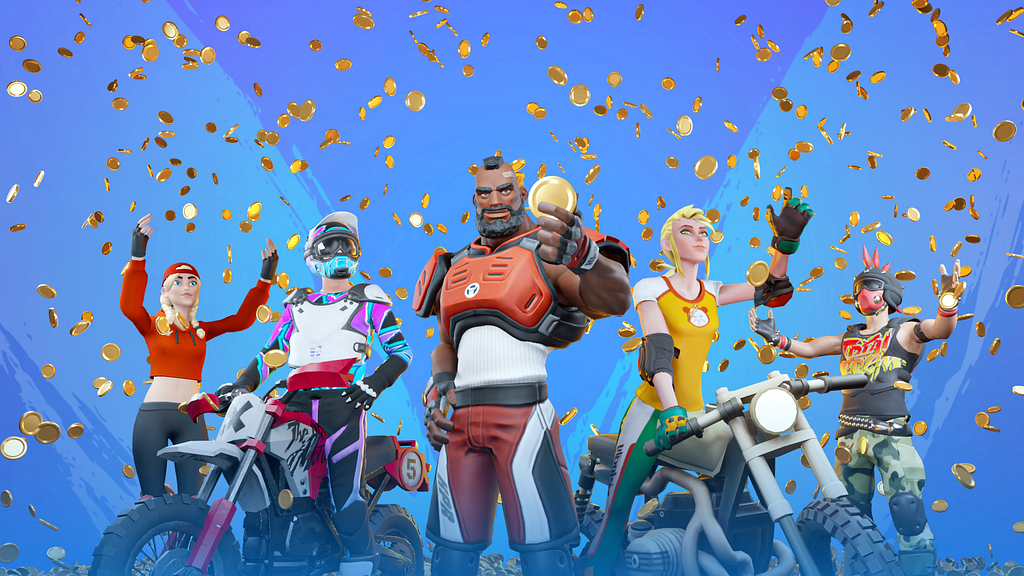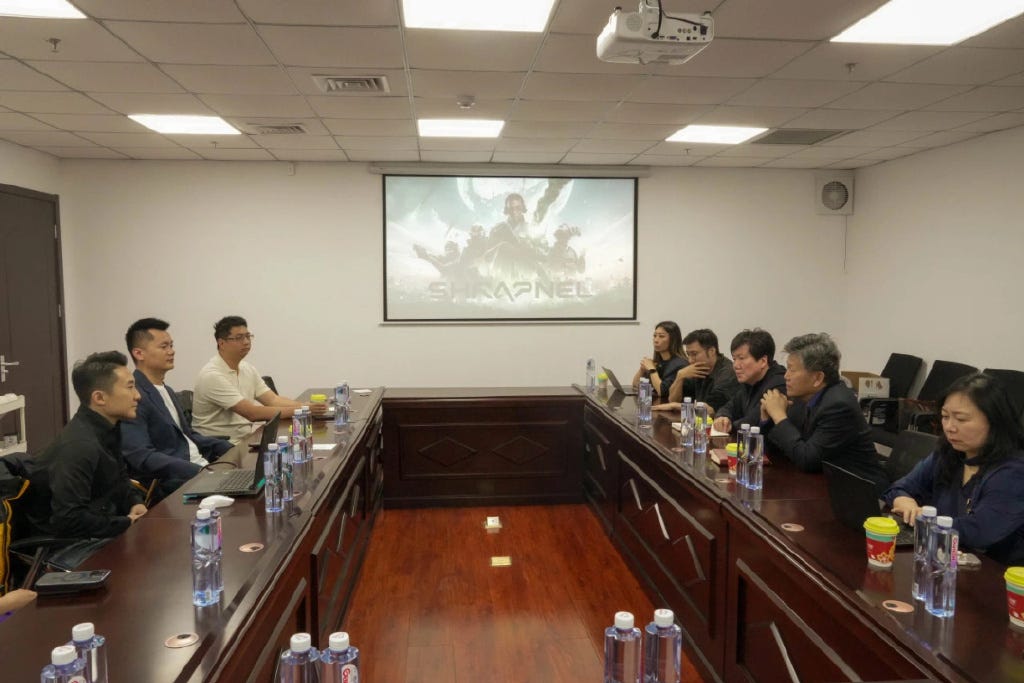What is a web3 game to us?

The gaming industry has been digital for dozens of years. With the rise of the internet, gaming became global and unlocked new opportunities for multiplayer and social gameplay. Now, there is an additional layer allowing a new range of possibilities, often referred to as web3. Lately, there’s been a separation between web2 and web3 games, but why are we doing so?
Allow us to share our thoughts on the matter, and what makes a game ‘a web3 game’ to us.
What is web3?
The internet as we know it today is not referred to as web2, it’s simply known as the internet. Where previously the internet was made up of a range of web pages that did not communicate with each other too much, the platformization and rise of applications has transformed everything. The internet now became a communications tool rather than merely a display of certain goods.
Web2 is an internet under the control of companies that provide services in exchange for your personal data. The power of the internet has become more centralized with the major services provided by a handful of companies. In web3, applications are run decentralized with the users in full control of their assets and data. This change of perspective affects all industries, including our gaming industry.
When the potential of decentralized gaming became more evident, we could suddenly see a rise in games adapting this model. These games embraced the term web3 games, creating a broad separation between games in the web2 environment and this wave of new players.
What makes a game a web3 game?
Games are games, let’s make that clear. What kind of technology one uses should not force that game and its players into a certain category or be viewed as more entertaining or less. We’ve been asked again and again: “what really makes your new game and ecosystem a web3 game?”, so we have tried to find the checklist defining that, but there is none.
However, there are some characteristics of games implementing blockchain capabilities that are simply not possible in the more traditional gaming industry like we know today.
Ownership

In games like we know them today, your account and its possessions are stored in a database. You log into your account, view your items and start playing the game that you like. When you proceed in the game, and you pass certain milestones, you may receive additional items and your account becomes more valuable. However, when you would like to translate that value into something tangible, you run into a wall.
Utilizing a decentralized database where changes are permanent and immutable, you unlock something greater than the game. The high-level account, and its items, that you’ve worked so hard for can now be transferred as an NFT to others, and thereby made tangible. There’s no central entity that can touch your belongings, and therefore the ownership is truly in your hands.
Allowing this, you can unlock a completely separate market outside of the game that allows players to merit from their effort. Instead of closing the game and forcing people into shady online deals over Oldschool marketplaces and internet forums, this can now be done on NFT marketplaces like OpenSea and in-game stores.
Decentralized organizations
An additional feature that’s unique to games in web3 are the decentralized organizations running the game. Instead of a game studio that created the game controlling everything that happens in-game, you now have the voice of the player that’s more important than ever. Having true ownership of the assets in the game, including tokens or NFTs makes an organization decentralized.
When the players square up and do not agree with certain rules or changes in a game, they can voice their opinion and suggest amendments. Honoring the decentralized nature, game studios will be forced to implement the wishes of the majority. This dynamic is unique, and has not been discovered previously in any game. We’re on the verge of discovering what this will mean when full-fledged games are playable that include these options.
Let’s stop differentiating between web2 and web3
Above, we’ve mentioned two sample topics that are unique to a decentralized version of the internet. There are more features that have yet to be explored, but let’s pause for a moment. Instead of seeing web3 as something completely alien from web2, and categorizing these new games into something only available to those open to web3, let’s change our perspectives.
The internet as we know it today isn’t mentioned as ‘web2’ all the time, it’s simply known as ‘the internet’. Whenever decentralization becomes more common, web3 will not be an alien concept, it’ll be baked into the applications that we’re all familiar with. Concentrating on the gaming industry, we will be playing games incorporating blockchain technology without realizing it.
Everything for the player

We’re on a mission to build a really great game. This game will be exciting for everyone also those who have enjoyed any of our games before, but this game will be even better. To give you an idea, everything that we’re building can be done in web2, however the fundamentals are different. The ownership is different, it’s actually and in reality belongs to you.
The infrastructure that we’re using for this new version of Trial Xtreme, and eventually a wide range of games is fundamentally different. It allows us to challenge ourselves, think bigger and create a richer experience for the player. Therefore, we are focused on building a game that’s interesting and appealing to everyone out there, with additional layers on top.
You simply fancy a game of Extreme Sports? Go ahead and play!
You’re more into receiving rewards for the effort you put in? We got you.
Brands that wish to appear in front of millions of gamers, come along!
Builders that want to expand on our game? You’re more than welcome!
To stay up to date with our journey, follow us on these channels:
Twitter: https://twitter.com/TrialXtreme
Medium: https://medium.com/@gameplaygalaxy
Discord: discord.gg/trialxtreme
Website: https://gameplaygalaxy.com/

